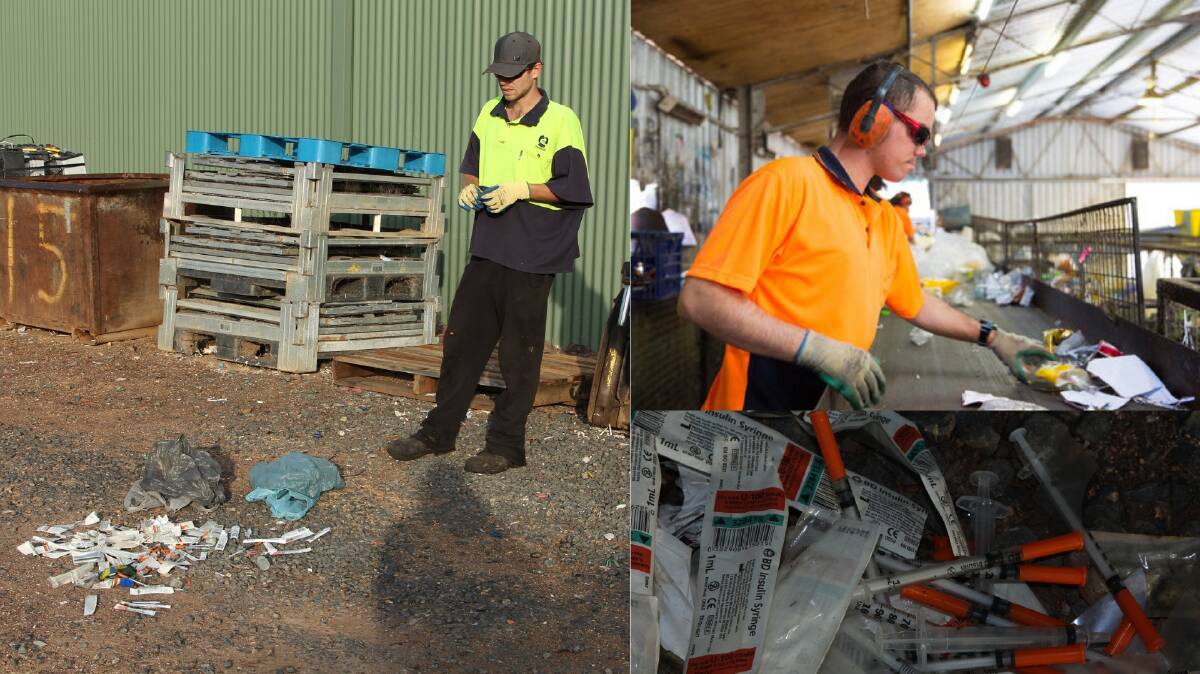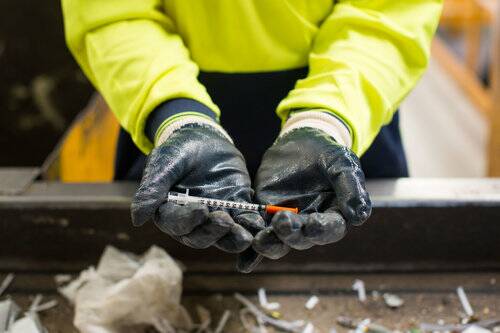Syringes are not recyclable.
Subscribe now for unlimited access.
$0/
(min cost $0)
or signup to continue reading
The simple message follows nightmare reports of need-stick injuries at recycling facilities across the Riverina.
Valmar Disability Enterprises manager John Stanfield said a number of disability service clients had endured the harrowing wait for HIV and hepatitis test results, due to residents’ ignorance.
Mr Stanfield said working with waste was inherently risky, but bio-hazards were unnecessary.
“It poisons the job more,” Mr Stanfield said. “It puts our guys’ health at risk and the environment.”
He said most yellow bins were being used correctly, but Tumut-based Gilmore Waste and Recycling Facility employees were still sifting through dirty nappies, old food, chemical-affected items and sharps.
Mr Stanfield said Valmar had taken to paying for free-to-air advertisements to urge households to watch what they discard.
The rules are simple: Recyclable goods must be free from plastic bags, clean, safe and should never have been alive. That means anything that was once a plant or an animal should never find its way into the yellow bin. Food, clothing, furniture, linen, scrap metal and ceramics are also out.
“We’ve had pigs heads and dead snakes before,” Mr Stanfield said. “At times we’ve had hundreds of needles come through.”
In addition to the serious health risks, he said contaminated sections of recycling could cost the facility greatly.
Mr Stanfield said entire loads were sent to landfill because of one item.
“That’s about 200 bins worth,” he said. “If it’s a safety risk, we don’t touch it.”

He said the loss from potential cardboard and plastic sales had a flow-on effect too, with pressure placed on landfill resources and then ratepayers by extension.
“It doesn’t comfort households knowing one bad bin has ruined an entire street’s worth of good work,” Mr Stanfield said. “The majority are doing the right thing.”
He said regular bin audits had helped fix the problem across the region, but the message still needed sharing.
“People are handling the contents of your bins,” he said. “They are human.”
Click HERE for more information on how to ‘recycle right’.



